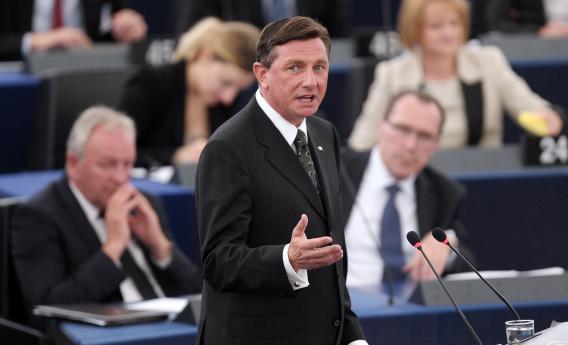From Brussels, I’ve just arrived in Strasbourg, following a migratory course that’s common for Members of the European Parliament and their staff. You see, the treaties that govern the European Union fix the location of Parliament in Strasbourg, France—a symbolically potent city that’s passed back and forth between France and Germany over the years.
But the efficient place for parliamentarians to do their work is in Brussels, where the other major EU institutions are located. So MEPs and their staffs do, in fact, spend most of their time in Brussels. That’s where the party groups are headquartered, it’s where the committees meet, and, generally speaking, it’s where things happen. But since officially the parliament meets in Strasbourg, it comes here for 12 plenary sessions a year. And even though most of the parliamentary staffers one can talk to on the (rather long) Brussels–Strasbourg train seem to think they should do the sensible thing and just move the parliament wholesale to Brussels, the French won’t stand for that kind of reform since it would cost Strasbourg a fair amount of revenue.
In and of itself, that kind of inefficiency isn’t a very big deal. But it’s a nice symbolic reminder that the institutional structure of the European Union remains rather clunky, and European politics in many ways remains quite parochial even as the single currency project has created more of a need for efficient decision-making. It’s easy to get condescending about this, but that’d be a mistake—there’s no precedent for the kind of very complicated, very deep international cooperation that the EU represents, so there’s no basis for denying the fact that they do a very good job of it. But it means that the serious economic policy problems facing the continent are going to be extremely difficult to fix. As messy and “dysfunctional” as American political institutions sometimes look, they’re a walk in the park compared with the overlapping veto points and supermajorities required for EU decision-making, and the continued strength of national allegiances only makes things harder.
